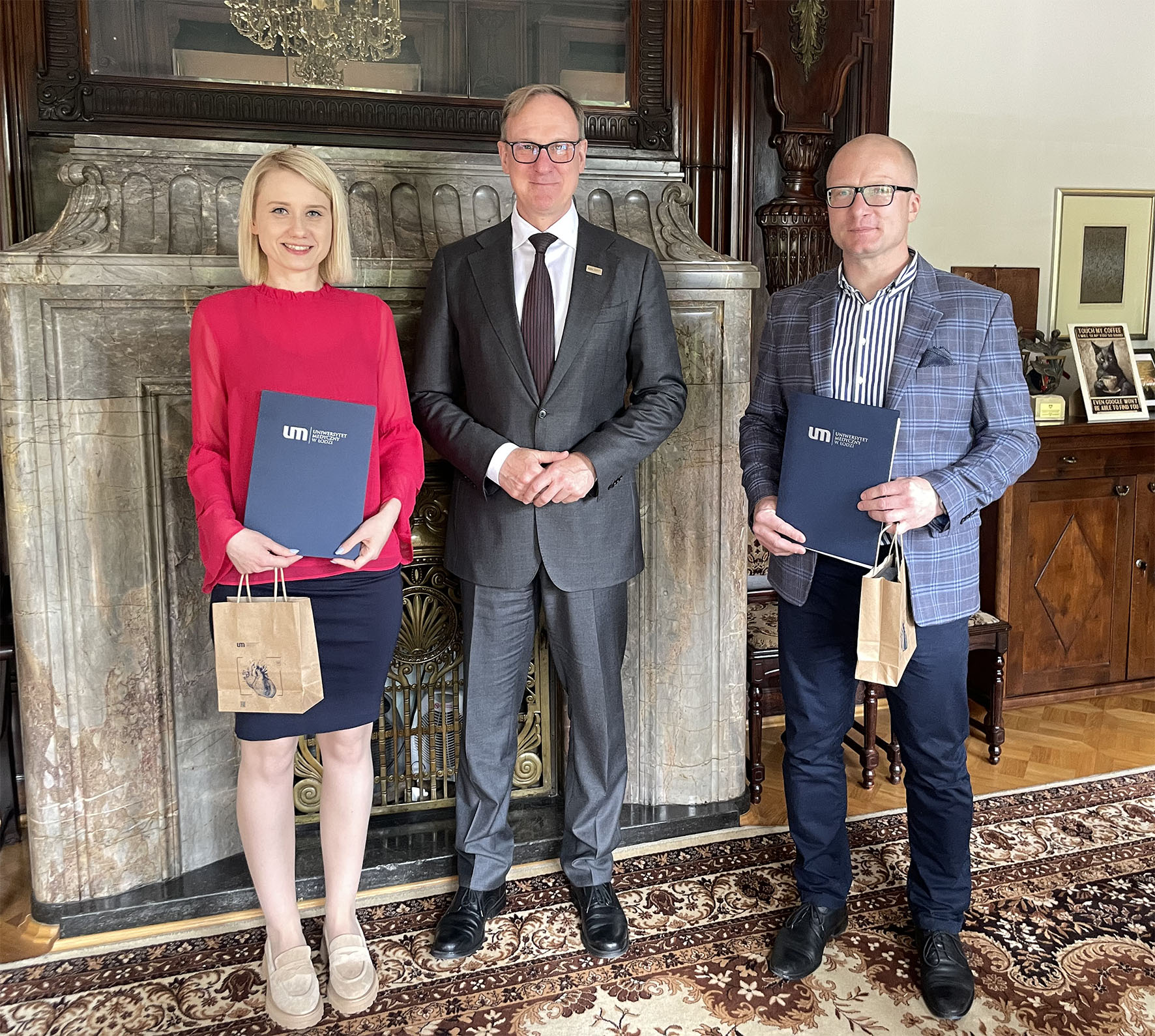WINNERS OF THE UNIVERSITY’S SECOND INTERNAL COMPETITION TO SUPPORT YOUNG RESEARCHERS ANNOUNCED
Once again, UMED grants were awarded to support young researchers in preparing applications for the MSCA Postdoctoral Fellowships competition, in collaboration with an international supervisor.
The winners of the second edition of the competition are:
- Anna Magiera, PhD in Pharmacy
- Tadeusz Strózik, PhD in Chemistry
The funds awarded under the grant will be used as a salary supplement and to cover the costs of establishing cooperation. Additionally, the International Projects Office, which coordinates the initiative, offers full support in finding a host institution and an international supervisor.
The selected researchers received congratulations from the Rector, Prof. Janusz Piekarski.
We warmly congratulate them!
Anna Magiera PhD in Pharmacy
Since 2018, Dr. Anna Magiera has been a research and teaching staff member at the Department and Division of Pharmacognosy at the Medical University of Lodz. In 2023, she earned her PhD with distinction in medical sciences and health sciences, specializing in pharmaceutical sciences. She is the author/co-author of 30 original and review scientific articles published in peer-reviewed journals and has presented over 30 conference presentations, some of which were awarded at international and national symposia.
She is the laureate of the PRELUDIUM 21 competition funded by the National Science Centre, where she serves as the principal investigator of the research project. Additionally, she has received numerous individual scholarships and team awards from the Rector of the Medical University of Lodz.
Throughout her scientific career, she has completed numerous research internships, including at the Department and Division of Pharmaceutical Biology and the Department and Division of Biochemistry and Pharmacogenomics at the Medical University of Warsaw. She has also completed many certified courses and training sessions.
Dr. Magiera holds a postgraduate degree from the Warsaw University of Technology in “Project Management: methodologies, practice, techniques, tools.”
Her research focuses on detailed phytochemical analysis and biological activity of plant substances/natural compounds obtained from various plant species (including Prunus L. species and Marrubium vulgare L.). During her research, she employs techniques such as high-performance liquid chromatography coupled with mass spectrometry, ex vivo isolations, in vitro cultures, various spectrophotometric and fluorimetric methods, and immunoenzymatic assays to assess biological activity.
Under the awarded grant, Dr. Magiera will conduct scientific collaboration with Prof. Christian Zidorn, a renowned expert in pharmacognosy and botany and recipient of numerous grants including the Marie Curie Intra-European Fellowship. The research will be carried out at Pharmazeutisches Institut, Abteilung Pharmazeutische Biologie, Christian-Albrechts-Universität zu Kiel. The project aims to obtain a comprehensive chemical characterization of plant substances derived from the genus Tragopogon. In subsequent stages, the plant materials will be used to study biological activity and toxicity.
Tadeusz Strózik PhD in Chemistry
Dr. Tadeusz Strózik is an assistant professor at the Department of Molecular Biology at the Medical University of Lodz, specializing in molecular biology and the application of computational methods in structural biology. In his scientific work, he employs molecular modeling techniques such as ligand docking to proteins and modeling the structure of antibodies and their interactions with receptors.
He earned his PhD in chemical sciences at the Lodz University of Technology, where he conducted research on the interactions of porphyrins with proteins and DNA. He has experience working both in academia and the biotechnology sector.
Currently, he conducts basic research on developing diagnostic tools aimed at stratifying patients for therapies against glioblastoma multiforme, using bioinformatics methods and cellular engineering. His research includes designing optimized monoclonal antibodies and testing their functionality in vitro.
As part of the MSCA Postdoctoral Fellowship project, he plans to collaborate with Prof. Klaus Liedl on a project involving molecular modeling of scFv antibody sequences that recognize antigens for CAR T-cell receptors targeting glioblastoma multiforme. Prof. Liedl heads the Theoretical Chemistry Laboratory at the University of Innsbruck, where he develops advanced molecular simulation methods, including classical and enhanced molecular dynamics simulations as well as quantum chemistry. His team focuses on studying the dynamics and function of antibodies, combining theoretical approaches with experimental data to understand biomolecular recognition mechanisms and design new therapies.








